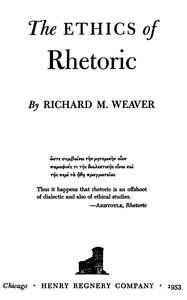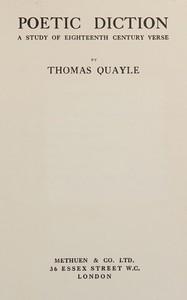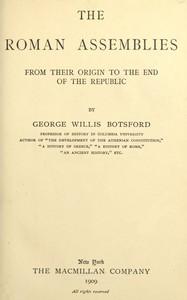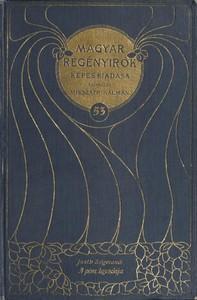|
|
Read this ebook for free! No credit card needed, absolutely nothing to pay.Words: 70938 in 16 pages
This is an ebook sharing website. You can read the uploaded ebooks for free here. No credit cards needed, nothing to pay. If you want to own a digital copy of the ebook, or want to read offline with your favorite ebook-reader, then you can choose to buy and download the ebook.

: The ethics of rhetoric by Weaver Richard M - Public speaking; Persuasion (Rhetoric)@FreeBooksThu 08 Jun, 2023 successful to determine the details to be taught in the schools through the vote of legislatures rather than as a result of scientific investigation. Thus the two sides lined up as dialectical truth and empirical fact. The state legislature of Tennessee, acting in its sovereign capacity, had passed a measure which made it unlawful to teach that man is connatural with the animals through asserting that he is descended from a "lower order" of them. The legal question was whether John T. Scopes had violated the measure. The philosophical question, which was the real focus of interest, was the right of a state to make this prescription. We have referred to the kind of truth which can be dialectically established, and here we must develop further the dialectical nature of the state's case. As long as it maintained this dialectical position, it did not have to go into the "factual" truth of evolution, despite the outcry from the other side. The following considerations, then, enter into this "dialectical" prosecution. The policy of the anti-evolution law was the same type of policy which Darrow had by inference commended only a year earlier in the famous trial of Loeb and Leopold. This clash is perhaps the most direct in the Scopes case and deserves pointing out here. Darrow had served as defense counsel for the two brilliant university graduates who had conceived the idea of committing a murder as a kind of intellectual exploit, to prove that their powers of foresight and care could prevent detection. The essence of Darrow's plea at their trial was that the two young men could not be held culpable--at least in the degree the state claimed--because of the influences to which they had been exposed. They had been readers of a system of philosophy of allegedly anti-social tendency, and they were not to be blamed if they translated that philosophy into a sanction of their deed. The effect of this plea obviously was to transfer guilt from the two young men to society as a whole, acting through its laws, its schools, its publications, etc. Now the key thing to be observed in this plea was that Darrow was not asking the jury to inspect the philosophy of Nietzsche for the purpose either of passing upon its internal consistency or its contact with reality. He was asking precisely what Bryan was asking of the jury at Dayton, namely that they take a strictly dialectical position outside it, viewing it as a partial universe of discourse with consequences which could be adjudged good or bad. The point to be especially noted is that Darrow did not raise the question of whether the philosophy of Nietzsche expresses necessary truth, or whether, let us say, it is essential to an understanding of the world. He was satisfied to point out that the state had not been a sufficiently vigilant guardian of the forces molding the character of its youth. But the prosecution at Dayton could use this line of argument without change. If the philosophy of Nietzsche were sufficient to instigate young men to criminal actions, it might be claimed with even greater force that the philosophy of evolution, which in the popular mind equated man with the animals, would do the same. The state's dialectic here simply used one of Darrow's earlier definitions to place the anti-evolution law in a favorable or benevolent category. In sum: to Darrow's previous position that the doctrine of Nietzsche is capable of immoral influence, Bryan responded that the doctrine of evolution is likewise capable of immoral influence, and this of course was the dialectical countering of the defense's position in the trial. There remains yet a third dialectical maneuver for the prosecution. On the second day of the trial Attorney-General Stewart, in reviewing the duties of the legislature, posed the following problem: "Supposing then that there should come within the minds of the people a conflict between literature and science. Then what would the legislature do? Wouldn't they have to interpret?... Wouldn't they have to interpret their construction of this conflict which one should be recognized or higher or more in the public schools?" This point was not exploited as fully as its importance might seem to warrant; but what the counsel was here declaring is that the legislature is necessarily the umpire in all disputes between partial universes. Therefore if literature and science should fall into a conflict, it would again be up to the legislature to assign the priority. It is not bound to recognize the claims of either of these exclusively because, as we saw earlier, it operates in a universe with reference to which these are partial bodies of discourse. The legislature is the disposer of partial universes. Accordingly when the Attorney-General took this stand, he came the nearest of any of the participants in the trial to clarifying the state's position, and by this we mean to showing that for the state it was a matter of legal dialectic. There is little evidence to indicate that the defense understood the kind of case it was up against, though naturally this is said in a philosophical rather than a legal sense. After the questions of law were settled, its argument assumed the substance of a plea for the truth of evolution, which subject was not within the scope of the indictment. We have, for example, the statement of Mr. Hays already cited that the whole case of the defense depended on proving that evolution is a "reasonable scientific theory." Of those who spoke for the defense, Mr. Dudley Field Malone seems to have had the poorest conception of the nature of the contest. I must cite further from his plea because it shows most clearly the trap from which the defense was never able to extricate itself. On the fifth day of the trial Mr. Malone was chosen to reply to Mr. Bryan, and in the course of his speech he made the following revealing utterance: "Your honor, there is a difference between theological and scientific men. Theology deals with something that is established and revealed; it seeks to gather material which they claim should not be changed. It is the Word of God and that cannot be changed; it is literal, it is not to be interpreted. That is the theological mind. It deals with theology. The scientific mind is a modern thing, your honor. I am not sure Galileo was the one who brought relief to the scientific mind; because, theretofore, Aristotle and Plato had reached their conclusions and processes, by metaphysical reasoning, because they had no telescope and no microscope." The part of this passage which gives his case away is the distinction made at the end. Mr. Malone was asserting that Aristotle and Plato got no further than they did because they lacked the telescope and the microscope. To a slight extent perhaps Aristotle was what we would today call a "research scientist," but the conclusions and processes arrived at by the metaphysical reasoning of the two are dialectical, and the test of a dialectical position is logic and not ocular visibility. At the risk of making Mr. Malone a scapegoat we must say that this is an abysmal confusion of two different kinds of inquiry which the Greeks were well cognizant of. But the same confusion, if it did not produce this trial, certainly helped to draw it out to its length of eight days. It is the assumption that human laws stand in wait upon what the scientists see in their telescopes and microscopes. But harking back to Professor Adler: facts are never determinative of dialectic in the sense presumed by this counsel. Exactly the same confusion appeared in a rhetorical plea for truth which Mr. Malone made shortly later in the same speech. Then he said: "There is never a duel with truth. The truth always wins and we are not afraid of it. The truth is no coward. The truth does not need the law. The truth does not need the forces of government. The truth does not need Mr. Bryan. The truth is imperishable, eternal and immortal and needs no human agency to support it. We are ready to tell the truth as we understand it and we do not fear all the truth that they can present as facts." It is instantly apparent that this presents truth in an ambiguous sense. Malone begins with the simplistic assumption that there is a "standard" truth, a kind of universal, objective, operative truth which it is heinous to oppose. That might be well enough if the meaning were highly generic, but before he is through this short passage he has equated truth with facts--the identical confusion which we noted in his utterance about Plato and Aristotle. Now since the truth which dialectic arrives at is not a truth of facts, this peroration either becomes irrelevant, or it lends itself to the other side, where, minus the concluding phrase, it could serve as a eulogium of dialectical truth. Such was the dilemma by which the defense was impaled from the beginning. To some extent it appears even in the expert testimony. On the day preceding this speech by Malone, Professor Maynard Metcalf had presented testimony in court regarding the theory of evolution in which he made some statements which could have been of curious interest to the prosecution. They are effectually summarized in the following excerpt: "Evolution and the theories of evolution are fundamentally different things. The fact of evolution is a thing that is perfectly and absolutely clear.... The series of evidences is so convincing that I think it would be entirely impossible for any normal human being who was conversant with the phenomena to have even for a moment the least doubt even for the fact of evolution, but he might have tremendous doubts as to the truth of any hypothesis...." We first notice here a clear recognition of the kinds of truth distinguished by Adler, with the "fact" of evolution belonging to the first order and theories of evolution belonging to the second. The second, which is referred to by the term "hypothesis," consists of facts in an elaboration. We note furthermore that this scientist has called them fundamentally different things--so different that one is entitled to have not merely doubts but "tremendous doubts" about the second. Now let us imagine the dialecticians of the opposite side approaching him with the following. You have said, Professor Metcalf, that the fact of evolution and the various theories of evolution are two quite different things. You have also said that the theories of evolution are so debatable or questionable that you can conceive of much difference of opinion about them. Now if there is an order of knowledge above this order of theories, which order you admit to be somewhat speculative, a further order of knowledge which is philosophical or evaluative, is it not likely that there would be in this realm still more alternative positions, still more room for doubt or difference of opinion? And if all this is so, would you expect people to assent to a proposition of this order in the same way you expect them to assent to, say, the proposition that a monkey has vertebrae? And if you do make these admissions, can you any longer maintain that people of opposite views on the teaching of evolution are simply defiers of the truth? This is how the argument might have progressed had some Greek Darwin thrown Athens into an uproar; but this argument was, after all, in an American court of law. Free books android app tbrJar TBR JAR Read Free books online gutenberg More posts by @FreeBooks
: Poetic diction: A study of eighteenth century verse by Quayle Thomas - English poetry 18th century History and criticism; English language Diction@FreeBooksThu 08 Jun, 2023

: The Roman assemblies from their origin to the end of the Republic by Botsford George Willis - Rome Politics and government; Constitutional law Rome@FreeBooksThu 08 Jun, 2023
|
Terms of Use Stock Market News! © gutenberg.org.in2025 All Rights reserved.






